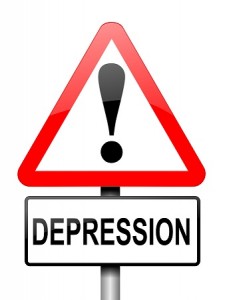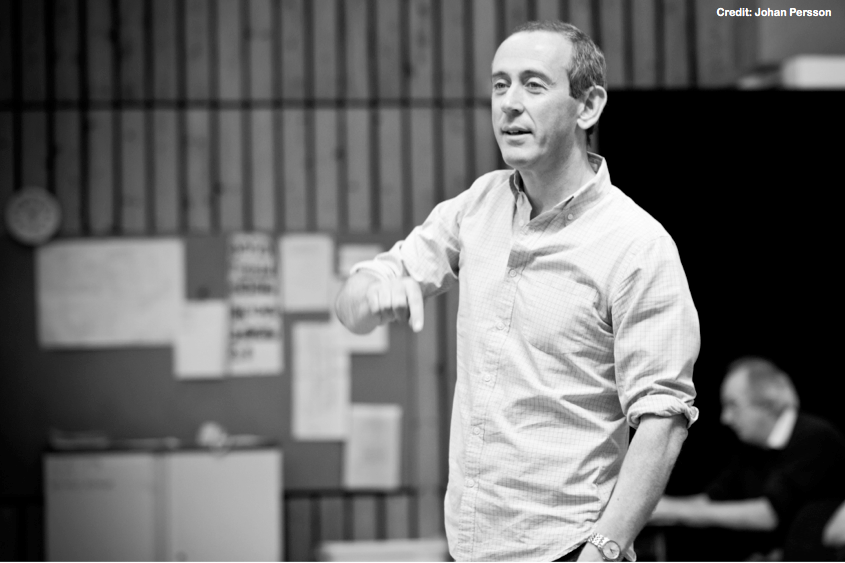This week I had a cold.
It began with a sore throat on Sunday and degenerated from there.
When I attempted to go out for something to stave off further symptoms, my car stubbornly refused to start.
I didn’t have breakdown cover.
On Monday I had a marathon, three hour therapy session with my psychologist as part of my new group therapy. Unlike the other sessions, this was a one-on-one. We mapped my ‘patterns’ and ‘cycles’, trying to understand what has caused them, and how I can change them. It was an extremely emotional few hours and I cried regularly.
I came out feeling not unlike I had been run over by a large vehicle of some description, possible a Virgin Train. Or Concord.
The fact my car had broken meant mother had kindly rearranged her day to take me all the way into Chester. She’d met up with my sister and niece and gone shopping while I was at the hospital, so I was fortunate when I came out in that I was greeted my the grinning face of my niece, who for reasons unknown always seems to find whatever I do hilariously funny. This helped considerably, as I was shaking by that point and honestly don’t know what I’d have done, had I needed to make the hour+ drive home by myself. Instead, I did a bit of shopping and actually found a nice dress that fitted (minor miracle).
This left me feeling considerably better about myself, however it had been a long day, I was starving hungry, and hadn’t had any lunch. I ended up having hot chocolate and cake in Costa and picking up a ready meal on the way home. To make matters worse, the fact that my sore throat had by this time developed into a full blown cold meant that I only wanted one thing: curry.
Don’t ask me why, but whenever I have a cold I want one of two things, curry or chilli. I can only assume it is because the spiciness goes some way towards clearing your congestion. I’ve had two lots of curry and one lot of chilli this week, and while I do have several fantastic, low calorie, low fat, curry and chilli recipes, I’ve been far too tired to cook.
I have yet to find a good, low-fat, ready meal curry. So, between the hot chocolate and cake, the curry and the (obligatory) naan bread, Monday was a total disaster diet-wise. Tuesday wasn’t much better, as I woke up feeling even worse, couldn’t be bothered keeping track of what I ate. If memory serves, I managed a relatively healthy lunch but then had cake and biscuits for dinner. Once again, a disaster.
 By Wednesday morning I felt like Death.
By Wednesday morning I felt like Death.
I woke up and simply did not want to get out of bed. The light was far too bright and hurt my head, which was already killing me, I ached all over, was insanely congested, and it seemed as if I were swallowing broken glass.
Worse still, I felt depressed.
I felt the dark clouds looming, the feeling of impending disaster, and the notion that life is just plain shit.
It was at this point (around 8am) that I forced myself out of bed, suddenly terrified that all of this meant I was headed back towards a great depression.
Almost exactly the same thing happened last year, around this time, as the changing weather left me with a bitch of a cold and I felt really miserable. Determined to stave of what I saw as the inevitable period of hell, looming on the horizon, I pushed myself out of bed, forced myself to work, forced myself to walk Dexter despite the pouring rain and do an extra lap of the park, because exercise as we all know is good for the mood. The result of all this was not that I suddenly felt better, but rather that I felt considerably worse. I did not want this to happen again.
So, on Wednesday morning I did not force myself to work, I did the sensible thing, and listened to what my own body was telling me: it was completely exhausted. I went back to bed, something I try desperately not to do, because it is another thing that I equate with true depression. I woke up feeling slightly better. The day passed much like any other. I felt well enough to work, so I sat at my desk and caught up on some writing, but when I started to feel tired mid-afternoon I stopped, rather than forcing myself to continue. I took myself away from the guilt of not working by going downstairs, away from my computer, to watch Sherlock. It is not often I separate myself from my computer, however I have found that at times, completely severing the connection is the only way I can get any rest.
Thursday was far worse. I woke up with a terrible headache. Unlike the day before, a lie in did nothing to make me feel better, and I felt like Death all day. I did no work, but parked myself in front of the TV and watched Bones all day, while knitting a new cardigan for my niece. I ate what I felt like eating, which as it turned out was more curry, garlic bread and half a tub of Ben and Jerry’s. It was a day when everything hurt, everything felt awful, and adding hunger and cravings to it was the last thing I needed. The curry cleared my head, the ice cream soothed my throat; at that particular point in time those two things were of greater concern to me than my diet.
Friday I woke up at a normal time, with no headache, no sore throat, no dizziness, and only a slightly running nose and scratchy voice to show for my troubles. I went about my day as normal, getting my work done, nipping into town to sort out some things with the bank and going to the shops for some (healthy) food. I ate lunch in Costa, as I was in town at the time, but I had a skinny hot chocolate, rather than the full fat with cream and marshmallows that I actually wanted, and declined any form of cakeage (this is almost impossible for me to do, especially when confronted by coffee and walnut cake).
By Saturday I felt perfectly fine once again, all had returned to normal.
When comparing this experience to the experience I had last year—severe bronchitis and several weeks of depression, even after the bronchitis had finally cleared up, I find myself wondering. It is generally upheld that ill-health or being ‘run down’ can easily trigger depressive episodes in people who are prone to such moods; this is one of the reasons a healthy diet and exercise are extolled as being so important in treating mood disorders. If you are already feeling lousy, if your body is already vulnerable to the onslaught of a virus or disease and expending all its energy fighting off the physical, it has fewer reserves to keep the mental in check.
In light of recent events however, I believe it is more than that.
When I began to feel ill, my immediate thought was not ‘I have a cold’, but ‘oh no, I’m getting depressed. AND, I have a cold, just to make everything worse’.
In my mind, the depression comes first. The fact that I was feeling bad made me vulnerable to a cold, rather than the reality, which was the other way around. Any person, regardless of their mental health, feels miserable when they’re ill. The problem for those of us who regularly feel miserable for other reasons, is that we tend to assume that any form of misery is the mental kind; we disregard the fact that any person with a cold would feel miserable, and assume it is a sign our own private form of hell is returning.
Once the idea has been placed in your head, there’s no shaking it. You either do everything you can in an effort to stave off another depressive phase—as I did last year—and by so doing run yourself down so much that your original illness is magnified tenfold, and you do actually become depressed, or the very fact you believe you’re already depressed depresses you, and it becomes a self-fulfilling prophecy: I think, therefore I am; I think I am depressed, therefore I become depressed.
Doctors often talk about people being ‘run down’, which causes them to become vulnerable to colds and flus and various other ailments. What they mean is that these people have developed a low immune system, for whatever reason, and so are less capable of fighting off any infections they come into contact with, infections they might otherwise have been perfectly capable of fighting off without becoming ill. It’s very easy to get run down by working too hard, or even playing too hard, sleeping too little, eating unhealthily, and not getting enough of the nutrients needed to keep your immune system strong.
Doctors often talk about being ‘down’, also. People, in general, will often say that dreaded phrase ‘everyone feels down sometimes’, when talking to someone with depression. These people either think they understand, or are trying to make that person feel better. The majority of them have no idea that those words make people who have suffered any kind of depression want to kill them. Slowly. And painfully. It is perhaps one of the most unhelpful, condescending, and irrelevant things a person can say to you when you are trying to explain how you feel during your depression. The reason for this is very simple: feeling ‘down’ is not the same as feeling depressed. Depression is a clinical illness. Feeling down is not. It might not be pleasant, but it doesn’t compare. Thinking it does, generally only serves to display how ignorant you are when it comes to the true nature of depression.
That said, while there is a vast difference between the ‘down’ felt by ‘everybody’ and the ‘downs’ felt by those with mood disorders, there is one saving grace in this unbelievably irritating expression: all people, in general, DO feel down sometimes, for a variety of reasons, the majority of which are transitory. What people with mood disorders have a nasty habit of forgetting is that they are included in that general category of ‘all people’, and while their depressive episodes do not fall under this patronising umbrella term of ‘feeling down’, there is a plethora of other instances in their lives which do. Instances which are mistaken for the first signs of another depression. Instances which then become another instance of depression, for no other reason than the person is so afraid that is what they are already feeling.
It occurs to me that, since I have become more self aware where my bipolar is concerned, I have become hyper-aware of my emotional state, and even the slightest dip in my mood is a cause for me to assume I am once again getting depressed. This, in itself, stresses me, and has at times actually pushed me into a state of depression which I most likely would not have experienced, had I not been so worried it was about to happen again.
This week I was feeling run down. I had a cold. I was, however, able to acknowledge the fact that it was just a cold, and treat it as anybody else would.
This time last year I was also feeling run down. I had a cold. I forgot that anyone with a cold would feel miserable and took it to be the first sign of another depressive cycle. As a result I became, almost instantly, depressed. I wasn’t just run down, I was running down; I felt the slightest echo of what I feel when truly depressed and, convinced I actually was depressed, ran myself headlong into a depression. That was one cycle that could easily have been avoided.
That is one cycle I have, thankfully, avoided repeating this year.
Another cycle I have is using food as a coping mechanism. I overeat when I’m stressed, I starve myself completely when I’m very upset. This week, I was so far off my diet you would think I was unaware the word even existed. I ate what I felt like eating, when I felt like eating it, be it calorific curries and chilli, cake, chocolate, ice cream or biscuits. The reason for this was simply that I didn’t have the energy to keep up the diet, and my body seemed to be screaming for certain things.

I assumed, naturally I think given what I ate in the last week, that this would be reflected on the scales this morning. Imagine my surprise when I stepped on and found—to my delight—that I had not gained a single pound. Moreover, I had not gained so much as 0.1 pounds. I had remained exactly the same weight I was last week. Given that I ate far less last week that this week, and gained 0.2 pounds last week, I can only conclude that the reason for this is that this week, while I was ill, my body actually needed the extra calories to fight off the cold.
Consequently, it is with great delight that I can record my weight has remained the same this week. It is also with renewed enthusiasm that I embark upon my diet again today, now that I feel better (both physically and mentally).





 By Wednesday morning I felt like Death.
By Wednesday morning I felt like Death.


